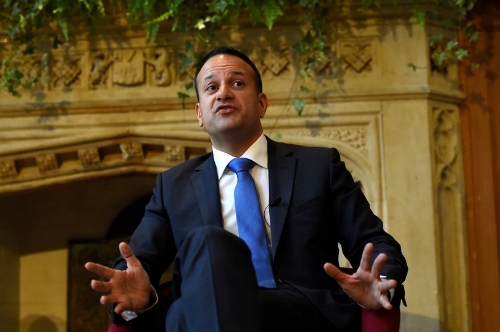By
AMANDA GLANCY
This article also appeared in The Business Post on 30 August 2018.

“…As a responsible government, we continue to prepare proportionately for all scenarios…”
So said Matt Hancock, the UK’s Secretary of State for Health and Social Care, last week.
Hancock’s comments were contained in a letter addressed to British pharmaceutical companies and suppliers setting out the UK Government’s medicine supply contingency plans in the event of a ‘no deal’ Brexit.
While the Government’s language suggests an ‘ask’, in official circles it has been made clear to medicines suppliers and pharma companies alike that the letter represents an instruction.
It unequivocally sets out what the UK Government expects of pharma companies supplying medicines to its NHS and patients, specifically:
increase medicines stocks by at least 6 weeks on top of usual buffer stocks; and
ensure plans are in place to airlift products with a short shelf-life that cannot be stockpiled.
While every sector, whether in Britain or Ireland, has concerns about the likely impact of Brexit, medicines, and the welfare of all patients who depend upon them, are clearly among the most critical considerations. No company, health service or government can risk not planning for the worst possible outcome, nor can they risk getting it badly wrong. It is life and death in many cases.
The risk is real. Pharma giant Merck, in the context of the UK, has already spoken of the possibility of a “temporary supply blackout”. Other UK pharma players are also demonstrating that they are moving to mitigate this risk to patients, with many already making their intentions clear.
Sanofi has said it plans to increase its inventory of medicines for the UK from its usual 10 weeks to 14; AstraZeneca has confirmed it is stockpiling medicines; Merck has discussed its plans to reserve as much as six months’ worth.
The NHS has requested all impacted pharma companies to report back by 10 September on how they plan to stockpile those medications currently made in Europe but sold to the NHS.
The NHS has even gone further by stipulating that for medicines that can’t be produced or stockpiled in advance, because of their short shelf lives, drug makers must provide assurances that they can airlift them into the UK to avoid truck backups and delays at new border controls between the UK and its former EU partners post-Brexit.
For British patients and healthcare professionals, the assertive and proactive response by the UK Government and NHS will provide greater assurance and confidence that patient needs will be met, particularly as the March deadline for the UK’s departure from the EU draws ever closer.
Ireland needs a plan

In Ireland, we are of course acutely aware of our heavy dependence on the UK for a wide range of goods and services. Among all EU member states, we will be the most negatively impacted by Brexit. Like the UK, we too now need urgent action from our Government and health decision-makers to ensure that the medicine needs of Irish patients are protected.
The UK remains a significant player in pharma manufacturing and supply. It has been estimated that 2,600 medicines have some stage of manufacture in the UK, with a likely majority of these medicines categories also finding their way to the Irish market.
Safeguarding this supply chain for Irish patients is now critical. While it is the case that many pharma companies that supply the Irish market may already have stockpiles of medicines for several weeks, we cannot know for certain the extent to which this is true for all companies supplying the market here. The actions taken by the UK Government this week are exactly about assessing the state of play, pre-empting difficulties and working to develop solutions.
While the Department of Health, HPRA and indeed, the Taoiseach himself have made some tentative remarks about stockpiling medicines in Ireland and drawing up contingency plans to protect medicines supplies, the overarching strategy is far from clear.
Of the pharma companies that PR360 works with, among them the largest suppliers of medicines to the HSE, none have been contacted by the Department of Health or other officials to better understand how, if at all, Brexit will impact them and medicine supplies.
In the UK, pharma companies have been much more proactive in recommending constructive solutions to minimise the risk. For example, Sanofi has suggested flying short-life vaccines to one single central hub where the Government would facilitate the instant release of such delivery, or to mark trucks specifically carrying medicines to ensure that they are fast-tracked through any future customs checks.
In Ireland, we now need to bring all stakeholders together to better understand the challenges we face and develop workable solutions. No one, least of all patients, deserves to be impacted by of the consequences of ‘fail to plan, plan to fail’.
AMANDA GLANCY
Amanda is Head of Policy and Healthcare Strategy at PR360. She develops comms plans that are underpinned by strategic and policy considerations and achieve meaningful change. Her greatest strength is her ability to speed read, honed by many years of scanning newspapers for client coverage.

